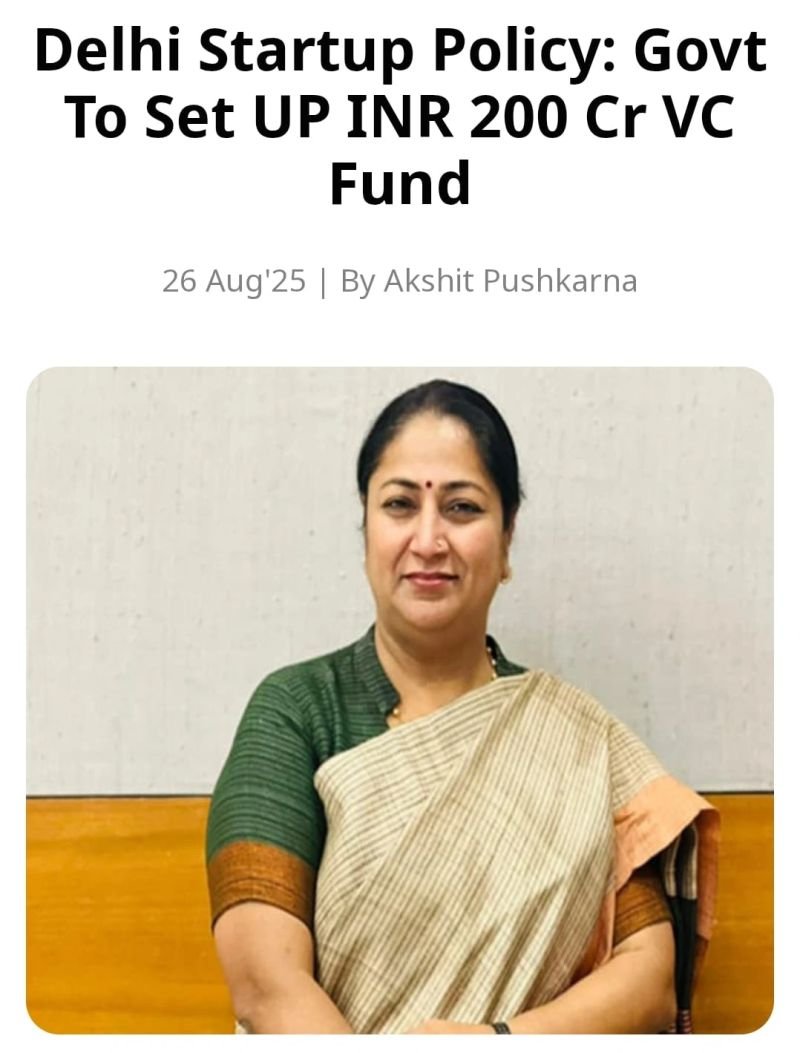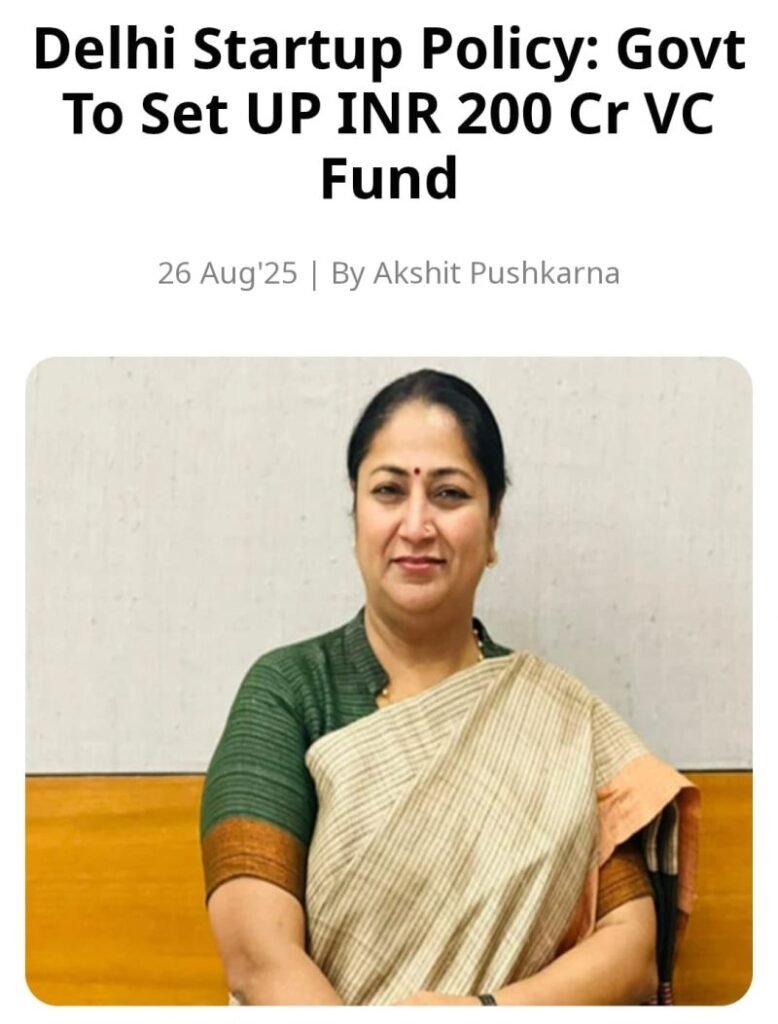Physical Address
304 North Cardinal St.
Dorchester Center, MA 02124
Physical Address
304 North Cardinal St.
Dorchester Center, MA 02124

Delhi has just taken a bold step forward in its journey to become a global startup hub. For the first time ever, the capital city has rolled out a dedicated startup policy—the Delhi Startup Policy 2025—with an ambitious vision of creating 5,000 startups by 2035.
At the heart of this draft policy is a ₹200 crore Venture Capital Fund designed to empower early-stage entrepreneurs, but what makes it truly promising is the comprehensive support structure built around it.

Unlike many state schemes that begin and end with funding, Delhi’s policy introduces a structured governance mechanism:
This framework ensures that policy support doesn’t just remain on paper but actually translates into impact.
Delhi has always been home to entrepreneurs but unlike Karnataka, Telangana, or Gujarat, it never had a dedicated policy for startups. That gap meant founders often had to depend on central government schemes or migrate to Bengaluru, Hyderabad, or Pune for ecosystem advantages.
This policy attempts to correct that. If executed well, it could:
For early-stage startups, this means reduced risk, stronger runway, and access to capital + mentorship within the city.
The draft is currently open for public feedback until September 3, 2025. This is a rare opportunity for the ecosystem founders, incubators, VCs, and industry experts to shape how Delhi nurtures its entrepreneurs over the next decade.
At [Your Company Name], we see this as a transformative moment for Delhi’s entrepreneurial landscape. The intent, inclusivity, and structure of this draft are strong signals that Delhi is finally ready to claim its place among India’s top startup destinations.
But policies succeed only when backed by efficient execution, transparent processes, and consistent stakeholder engagement. If those pieces come together, Delhi won’t just create 5,000 startups by 2035—it will build an ecosystem that fuels India’s next wave of innovation.